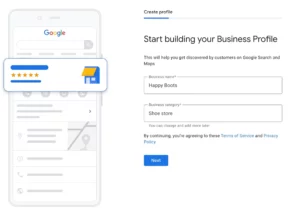Have you ever noticed how frequently people use voice assistants such as Alexa or Siri to ask questions like, “What is the best Italian restaurant near me?” Or, how many times have you caught yourself asking your smartphone for a recommendation? Probably more often than you think. Voice search is becoming increasingly normal as we spend more time on our devices. In fact, 71% of consumers prefer to conduct queries by voice instead of typing. You might be asking yourself why this matters, and the answer is simple. A typical voice search is not the same as a text search. When we talk to our devices, we phrase our queries like a real-life conversation, which is why it is crucial to optimize your website for voice search. In this blog, we will guide you through 4 strategies that will help you get in on the trend.
Focus on Conversational Keywords and Language

When people use voice search, they speak to their devices as if they are speaking to a friend. Instead of typing “cupcake recipe” into a search bar, people will ask full questions such as, “How do you make cupcakes?”, through voice search. Rest assured, there’s no need to overhaul your keyword strategy; all you have to do is incorporate longer, question-type keywords into your content. By leveraging data-driven insights, you gain a better understanding of your target audience’s preferences and intentions when conducting voice searches, helping you make stronger keyword choices.
Build Pages That Answer FAQS

Creating a Frequently Asked Questions (FAQ) page is a clear and effective approach to addressing your customers’ inquiries without keyword stuffing. They can provide answers to common questions about your business, help you stay relevant, and boost your ranking on search engine results pages. Think about it like this: FAQ pages give you the chance to directly address the queries of your target audience. Voice searches are more likely to ask a question in the same type of conversational manner, which is why it can be a vital SEO tactic to include a FAQ page on your website.
Pay Attention to Mobile
In today’s fast-paced world, people are consistently on the move, making it highly likely that a smartphone will be within their reach. When a person wants to locate the nearest gym, they are going to ask their smartphone, “Hey Siri, where is the nearest gym?”. Because a huge number of voice searches are done via mobile devices, you want to make sure that your website is mobile-friendly. Google regards the mobile user experience as a critical aspect of a well-designed website and takes it into account when determining search rankings. Therefore, adopting a responsive design will not only enhance your competitiveness in voice search but also ensure you provide a positive user experience to mobile users.
Leverage Google Business Profile
Each day, a growing number of users rely on voice search to find local business information. With voice search’s strong emphasis on local results, it is imperative to optimize your voice search rankings by creating a Google Business Profile. A Google Business Profile informs Google about your business’s specific location. By having this profile, when users inquire about businesses in your area, your business has a higher chance of ranking and being displayed in the search results.
As voice search continues to stay on the rise, optimizing for this technology is imperative for any business seeking to stay competitive. Implementing the strategies listed above will not only enhance your voice search ranking but also enable you to build a strong voice search optimization strategy.
Need some assistance in building an effective strategy? Bad Rhino can help.


